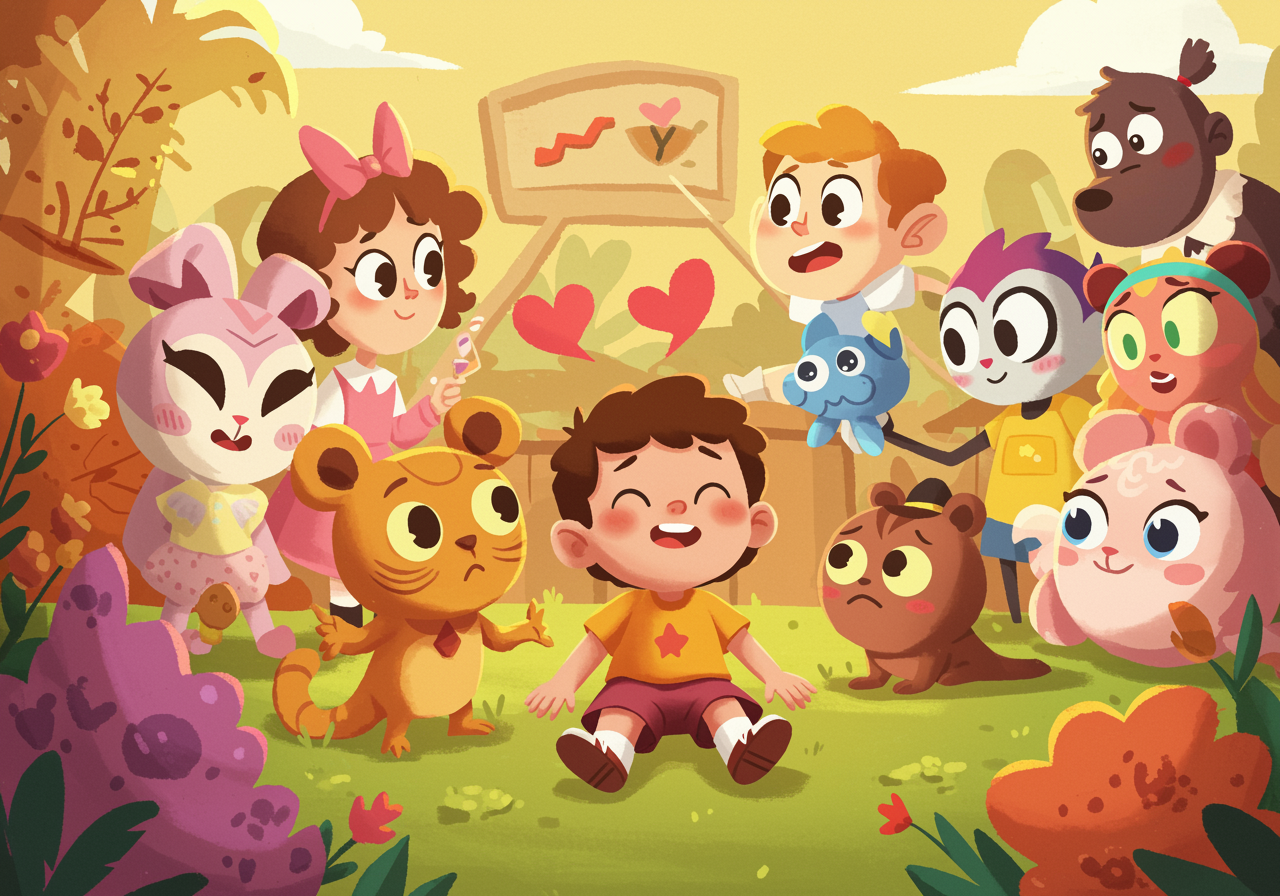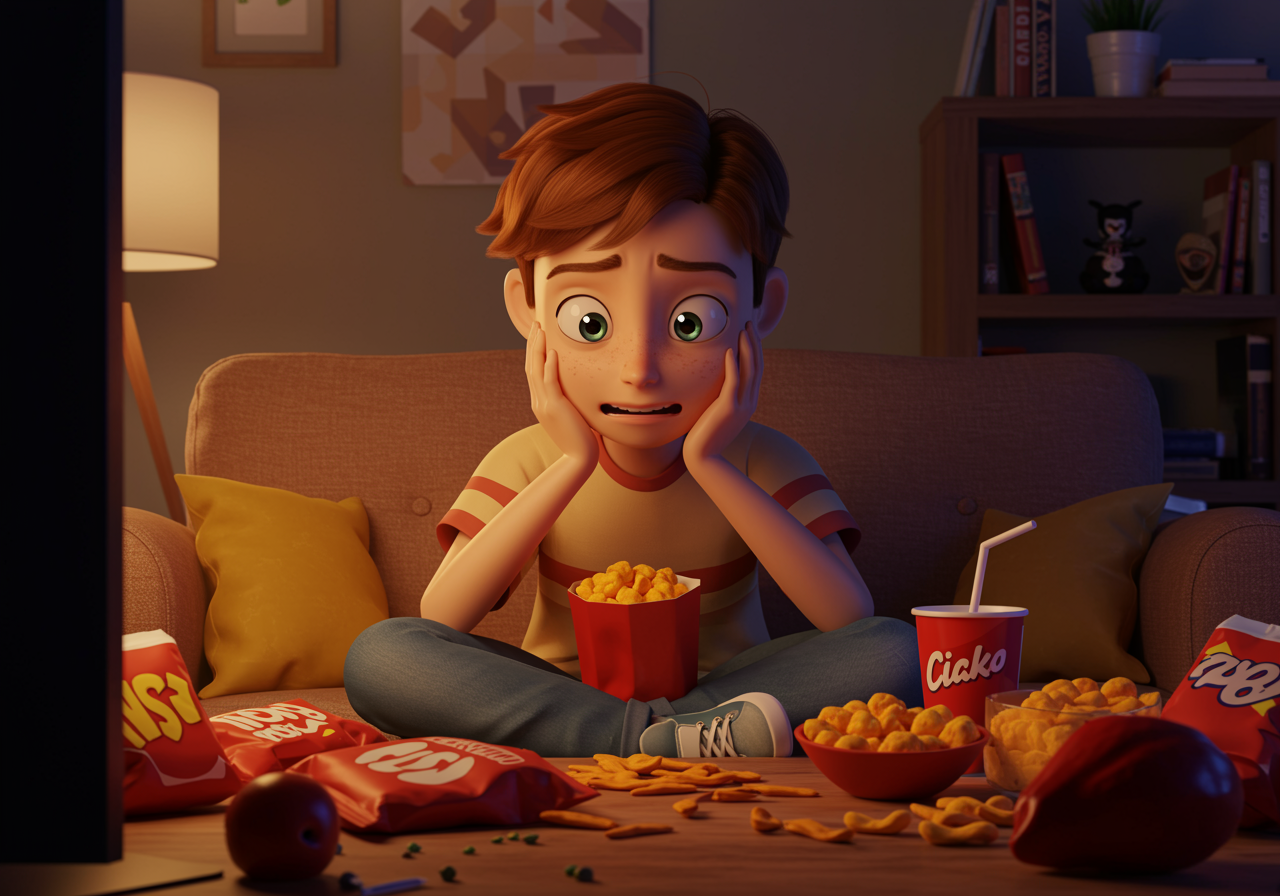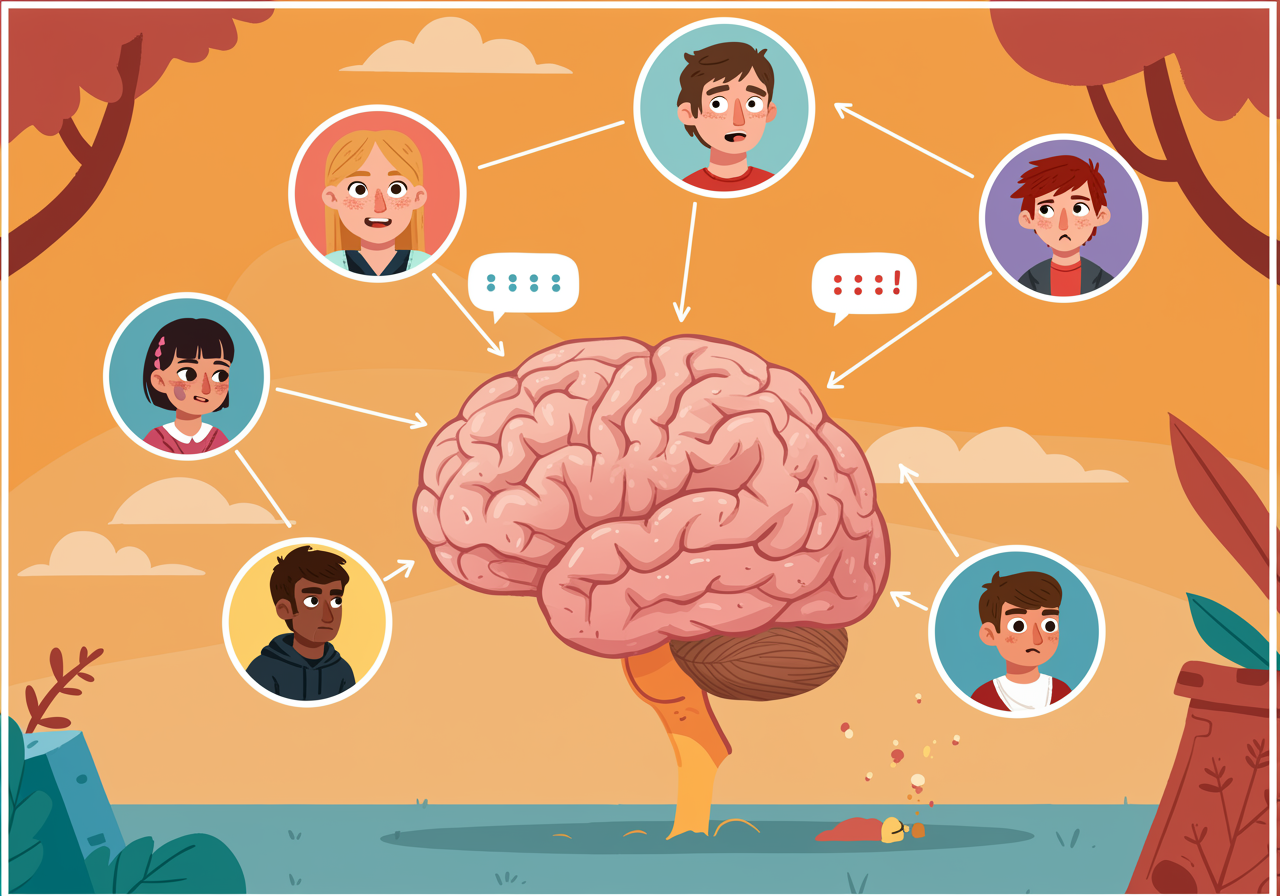Why We Fall for Fake People: The Science Behind Our TV Obsessions
Discover why your brain treats fictional characters like real friends (and why that’s totally normal!)
Ever wonder why people get so emotionally invested in TV characters who aren’t even real? Let’s explore the fascinating psychology behind our connections to fictional friends.
Overview
Have you ever noticed how some people get really upset when their favorite TV character gets hurt, or how they talk about fictional people like they're real friends? This happens because our brains are wired to form connections with characters we see regularly, even when we know they're not real. It's called a 'parasocial relationship' – a fancy term for a one-way friendship where you feel close to someone who doesn't know you exist. Understanding this helps us make sense of why we care so much about stories and the people in them, from soap operas to superhero movies.

Understand in 30 Seconds
Get up to speed quickly
- Your Brain Can't Tell the Difference: When you watch characters regularly, your brain starts treating them like real people you know, releasing the same happy chemicals as real friendships.
- It's Called a Parasocial Relationship: This is when you feel close to someone who doesn't know you exist – like your favorite YouTuber, TV character, or celebrity.
- Stories Help Us Practice Emotions: Getting invested in fictional characters helps us learn empathy and experience different emotions safely.
- It's Totally Normal (Within Limits): Most people form these connections, and it's healthy as long as it doesn't replace real relationships or control your life.
Real Life Scenario
Situations you can relate to
Think about your favorite YouTuber or TikTok creator. You probably feel like you 'know' them – you laugh at their jokes, worry when they're stressed, and get excited about their achievements. But here's the thing: they have no idea who you are! This is exactly what happens with TV characters, except they're completely fictional. Your brain doesn't really care though. When you see the same faces and personalities week after week, your brain says 'Hey, these must be my friends!' It's like your brain is a really enthusiastic golden retriever that wants to be friends with everyone it sees regularly. The chemistry in your brain that makes you happy when you see real friends? Yeah, that fires up for fictional characters too. Pretty wild, right?

Role Play
Spark a conversation with “what if” scenarios
What if you could explain to your favorite fictional character that they're not real?
- Role play: Take turns being the character and the person explaining. How would they react? What questions would they ask about the real world?
What if you met someone who had never heard of TV or movies?
- Role play: Try explaining why people care about fictional characters to someone who's never experienced stories before. What would be hardest to explain?
What if your favorite character suddenly knew you existed and could talk back?
- Role play: Role-play a conversation where your one-way friendship becomes two-way. What would you want to tell them? What would you ask?
FAQs
Frequently asked questions people want to know
Is it weird to cry over fictional characters?
Not at all! It shows you have empathy and can connect with others' emotions. Your tears are real even if the character isn't.
Can you be too invested in fictional characters?
If it's affecting your real relationships, school, or daily life, it might be worth talking to someone. Balance is key!
Why do some people get more invested than others?
Everyone's brain is different! Some people are naturally more empathetic, while others might use stories to cope with stress or loneliness.
Examples in the Wild
See how this works day to day
- When actor Chadwick Boseman died, millions grieved not just for him but for Black Panther, showing how fictional and real connections blend together. (BBC News, 2020)
- Fans of the TV show 'Friends' still visit the apartment building in New York and feel sad it's 'over,' even though it ended in 2004. (CNN Travel, 2023)
- Studies show people who read Harry Potter books report feeling genuine friendship with the characters years after finishing the series. (Journal of Social Psychology, 2019)
- Soap opera 'Days of Our Lives' has fans who've followed the same families for over 50 years, treating them like real relatives. (Entertainment Weekly, 2022)
In Summary
What you should know before you start
- Our brains form real emotional connections with fictional characters through 'parasocial relationships'
- This is completely normal and shows healthy empathy and emotional intelligence
- Stories help us practice emotions and understand different perspectives safely
- It becomes a problem only when it replaces real relationships or controls your life
Pro-tip for Parents
You got this!
If your teen seems 'obsessed' with a character or show, don't dismiss it as silly. Ask genuine questions about what they like about the character and why the story matters to them. This can lead to amazing conversations about values, emotions, and what they're looking for in real relationships. It's also a great way to understand what's going on in their emotional world.

Keep an Eye Out For
Find these examples in everyday life
- When your teen talks passionately about a book, show, or game character – ask what draws them to that personality
- Notice if they compare real people to fictional characters – this shows they're using stories to understand relationships
- Watch for news about actors or creators they follow – it's a chance to discuss the difference between the person and the character
Explore Beyond
Look up these related research topics
- How social media influencers create parasocial relationships with followers
- Why humans evolved to be storytellers and story-lovers
- The psychology behind why some stories become cultural phenomena while others don't